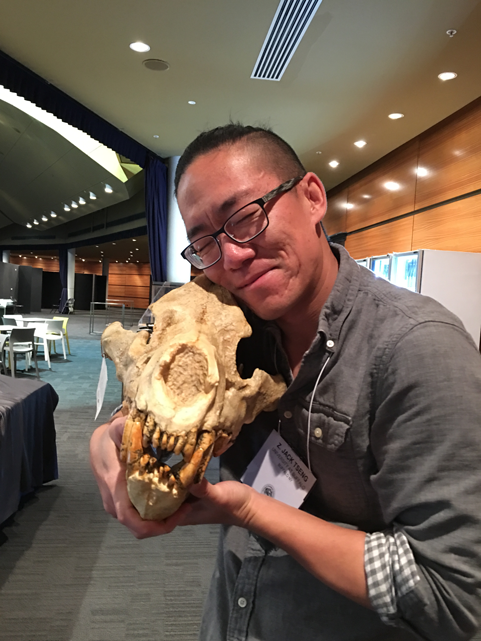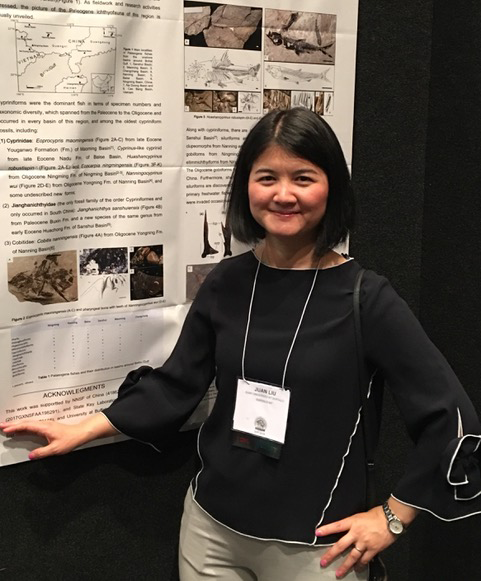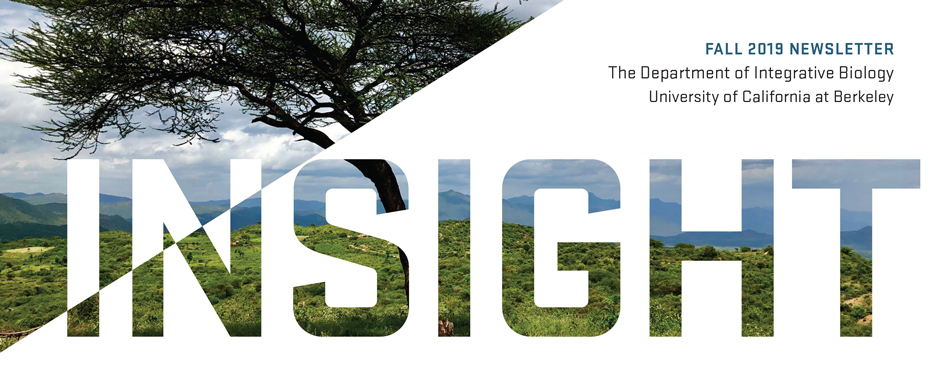Jack Tseng
 |
Jack Tseng (Photo credit: Juan Liu) |
When Jack Tseng joins IB as an assistant professor in the summer of 2020, he will return to where he was first inspired to pursue a research career. Tseng was an undergraduate in the department, earning his BA from IB in 2004. Originally on a path towards a computer science major, he discovered a love of biology working with hyenas as an intern at the Oakland Zoo. Tseng credits the IB student club (called SCIBUGS at the time) for effectively launching his scientific career by introducing him to the idea of research and connecting him with the Barnosky and Caldwell labs, where he started in research and received valuable mentoring from the faculty, graduate students, and postdoctoral fellows there.
Tseng is currently an assistant professor at the University at Buffalo where he studies the evolution of the skull and dental system in mammals, particularly carnivorans — a diverse group that includes hyenas, cats, and pandas. His work focuses on anatomical structure-function relationships in extinct and living mammals.
Tseng also does fieldwork at sites around the world to try to improve the fossil record during key periods in mammalian evolution. In the lab, he studies the biomechanics of bone and uses virtual models, computer simulations, and mechanical testing to explore “the boundary of what's possible by evolution and what's impossible.” He says he tries to broadly answer the question of how to define the “physical, energetic, or functional constraints to biodiversity.”
When Tseng comes to Berkeley, he will also be an assistant curator at the UC Museum of Paleontology (UCMP). He explains that both fieldwork and lab experiments are essential to his research. “I really can't have one without the other. That's part of the reason why I'm really excited to go back … because with the UCMP and IB, I get to do both as part of my job.”
Tseng says his move to IB will allow him to do more field paleontology and train students to do the same, and he is looking forward to using and potentially adding to the fossil collections in the UCMP. He’s grateful for the mentoring he received in IB labs as an undergraduate and says, “I’m super excited … to go back and really try to establish a lab that has that kind of fostering environment for future generations of scientists.”
For more information, please visit Tseng’s website.
Juan Liu
 |
Juan Liu (Photo credit Jack Tseng) |
Juan Liu is an evolutionary biologist and paleontologist who specializes in fish biology and functional anatomy of auditory systems. She is currently an assistant professor at the University at Buffalo and will be joining IB next summer as an assistant adjunct professor. She will also serve as an assistant curator in the UC Museum of Paleontology (UCMP) when she comes to Berkeley.
Liu says she was driven to work on fish because they have interesting anatomical structures, such as those in the auditory system, with functions that are not always well-understood. She studies the systematic relationships of fishes, as well as relationships between form and function in auditory structures across vertebrate species, with a particular focus on fossil fish.
“I decided to dive into this field to better understand how the auditory system works and how it evolved through changing environments. In the paleontology perspective, that would be the geological events — the tectonic and climatic events happening in the history of the Earth,” Liu says.
In addition to extinct fish, Liu uses zebrafish as a model to help reveal the relationship between structure and function in the auditory system. She creates CT scans of zebrafish auditory structures and then varies their morphology in computer simulations to see how hypothetical auditory systems might work. She also investigates the physiological responses of live zebrafish to sound stimuli in order to compare her computational models with actual physiological data.
Liu is excited to continue her combination of paleontological fieldwork, lab experiments, and theoretical modeling in IB. “My feeling about Berkeley is that it's full of creative energy. People are free to do any type of research they want and nobody calls them crazy,” Liu says, laughing.
Coming to Berkeley will give Liu the opportunity to launch a new field project in California and possibly other areas of the western US where fragments of fish fossils have been found that could fill important gaps in the evolutionary record. She’s also looking forward to examining the UCMP’s extensive collection of fossils for new areas of research to explore.
Back to Main Fall 2019 Newsletter Page







